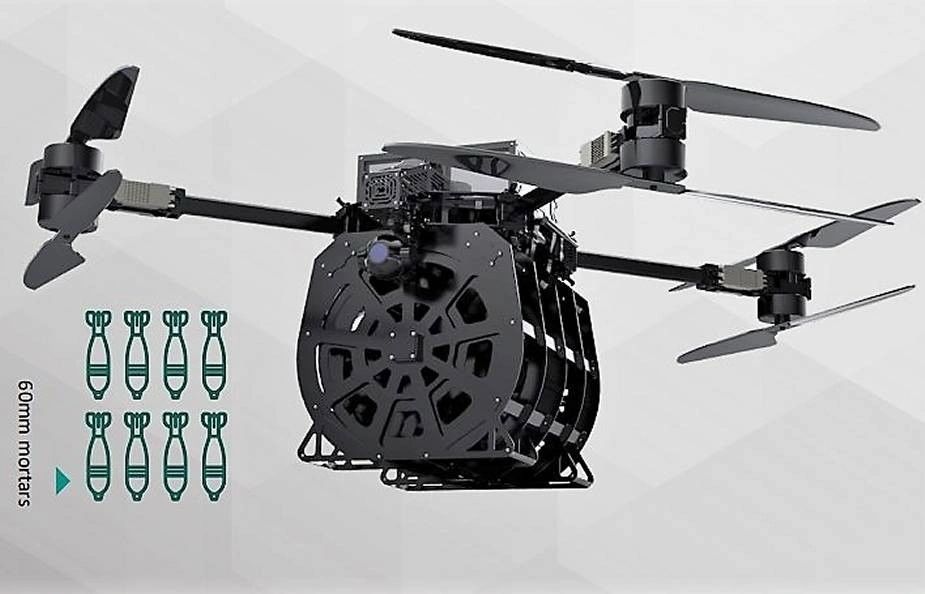SOURCE: AFI


In a significant development underscoring geopolitical sensitivities in the Indo-Pacific, Taiwan-based drone manufacturer DronesVision has categorically denied any collaboration or ongoing talks with a Pakistan military-backed company, dispelling reports of a potential deal to supply combat unmanned aerial vehicles (UAVs).
The Keelung City-based firm, a key supplier of militarized drones to India, issued a firm statement to The Sunday Guardian, emphasizing its adherence to Taiwan’s strict export regulations and national policy, which restrict dealings with certain countries, including Pakistan. The rebuttal, reported on April 20, 2025, highlights the complex interplay of defence technology proliferation, Taiwan’s strategic partnership with India, and Pakistan’s alignment with China, Taiwan’s principal adversary.
Speculation about a potential deal emerged when reports surfaced suggesting that Universal Smart Military Systems (USMS), a Karachi-based defence firm with ties to the Pakistan military, was exploring collaboration with DronesVision to acquire its combat UAVs, notably the Revolver 860. The Revolver 860, a tactical drone with a 10-kilometer range and 30-minute flight time, has gained prominence for its battlefield utility, reportedly used by Ukrainian forces against Russia. Posts on X amplified these claims, with one user noting, “A Taiwan-based drone manufacturing company that supplies drones to India has firmly denied any collaboration or ongoing talks with Pakistan.”
DronesVision swiftly clarified its stance, stating, “To date, we have not conducted any transactions, business engagements, or received any End-User Certificates (EUCs) from [Pakistan].” The company emphasized that its operations are governed by Taiwan’s export control regulations, which classify its products as Strategic High-Tech Commodities requiring official permits for international sales. “In light of geopolitical sensitivities and in strict accordance with Taiwan’s export control regulations, there are clearly defined restrictions regarding the countries we are permitted to engage in business with,” the statement added, reaffirming DronesVision’s compliance with national policy.
The denial quashes speculation that could have strained Taiwan’s growing defence and technology ties with India, a key partner in countering China’s regional influence. Posts on X reflected relief among observers, with one stating, “Taiwan’s DroneVision Denies Any Dealings With Pakistan,” underscoring the significance of the clarification for India-Taiwan relations.
The reported Pakistani interest in DronesVision’s UAVs was unprecedented, given the sensitive geopolitical dynamics involving Taiwan, India, and Pakistan. Taiwan and India have cultivated a burgeoning strategic relationship, particularly in defence and technology, driven by shared concerns over China’s assertiveness. India has procured DronesVision’s UAVs and anti-UAV systems, integrating them into its efforts to counter cross-border drone threats, especially from Pakistan along the Punjab border. A 2023 Sunday Guardian report detailed India’s deployment of anti-drone systems like the SkyWall 100 and DroneGun Tactical CHIMERA to neutralize Pakistani UAVs carrying contraband, highlighting the role of advanced technology in border security.
Pakistan, a close ally of China, has relied heavily on Chinese UAVs, such as the Burraq (based on China’s Rainbow series) and S-300 series, for reconnaissance and combat roles. The Sunday Guardian noted Pakistan’s acquisition of Chinese drones capable of speeds up to 900 km/h, reflecting its deepening defence ties with Beijing. The prospect of Pakistan seeking Taiwanese drones, even through a commercial entity like USMS, raised eyebrows, as it would have contradicted Taiwan’s strategic alignment and risked undermining its export controls, especially given China’s dominance in Pakistan’s defence supply chain.
DronesVision’s categorical denial aligns with Taiwan’s broader policy of avoiding engagement with nations closely aligned with China. A post on X emphasized this stance, stating, “Taiwan drone manufacturer says ‘no deal’ with Pak military-backed company,” reflecting the sentiment that such a deal would disrupt Taiwan’s strategic priorities.
DronesVision, headquartered in Keelung City, specializes in militarized UAVs and counter-UAV technologies, positioning itself as a niche player in the global defence market. Its Revolver 860, equipped with modular payloads for surveillance and combat, has been lauded for its versatility, with applications in Ukraine’s ongoing conflict with Russia. The company’s anti-UAV systems, designed to detect and neutralize rogue drones, complement India’s efforts to secure its airspace against incursions, a growing concern given the 500+ Pakistani drones seized by the Border Security Force (BSF) between 2020 and 2023.
Taiwan’s drone industry, bolstered by its semiconductor and AI expertise, is increasingly focused on commercial-grade UAVs with defence applications, as outlined in a 2023 Ministry of Economic Affairs (MOEA) pilot program. This initiative, inspired by Ukraine’s use of drones, aims to reduce reliance on Chinese supply chains and position Taiwan as a global supplier, with India as a key partner. DronesVision’s denial of dealings with Pakistan reinforces its commitment to this strategy, ensuring that its technology remains aligned with allies like India and the United States.
NOTE: AFI is a proud outsourced content creator partner of IDRW.ORG. All content created by AFI is the sole property of AFI and is protected by copyright. AFI takes copyright infringement seriously and will pursue all legal options available to protect its content.